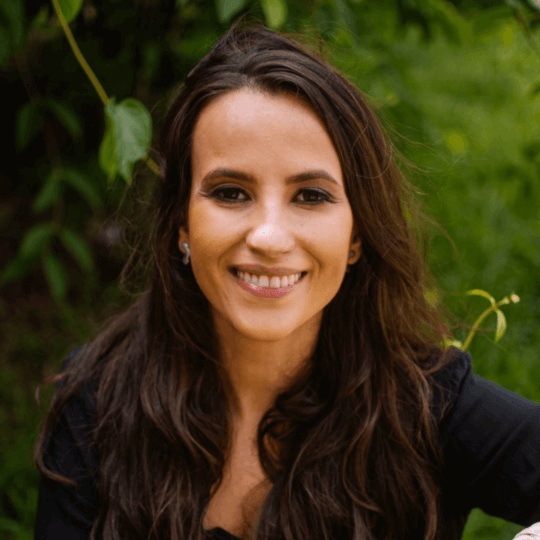
Roundtable: How can charities steward donor relationships to increase monthly support?
Introduction
In our Roundtable blog series, we ask a handful of contributors to provide their points of view on complex topics or unsettled questions. We hope this approach will help us learn from and integrate multiple perspectives on animal advocacy.
A nonprofit organization is built on a foundation of donors that provide the necessary support to achieve its mission. How an organization manages its relationships with donors is essential to its success. Donor stewardship—efforts to acquire, retain, and engage with donors to create long-term, mutually positive relationships—should be an integral part of your philanthropy strategy. Monthly donors, in particular, should have a more personalized experience and receive regular updates on the progress of your work and the impact of their gifts. This instills trust and allows donors to envisage how their support makes a difference, thus keeping them motivated to support your cause. So, what are the best ways to steward your donors? We asked four professionals in the animal advocacy space.
Thank you to the following people for contributing to this post:
- Elizabeth Álvarez, Animal Charity Evaluators
- Carolina Galvani, Sinergia Animal
- Bob Isaacson, Dharma Voices for Animals
- Andrea Diaz, Dharma Voices for Animals
Each of our contributors offers a wealth of experience and a unique perspective. Elizabeth has more than 11 years of experience in marketing and finance and has since performed fundraising roles at various NGOs. Carolina founded Sinergia Animal and has worked in advocacy, fundraising, and strategic planning for 20 years. Bob Isaacson was a civil rights-human rights attorney for 25 years before turning to Buddha’s teachings, beginning his Buddhist practice, and cofounding Dharma Voices for Animals. Finally, Andrea has a Master’s degree in Global Animal Law and has led hundreds of campaigns, protests, and educational events for animal rights organizations.
We encourage you to discuss our contributors’ thoughts—and share your own—in the comments!
Note: Some contributions have been edited for length and clarity.
Elizabeth Álvarez
Philanthropy Officer, Animal Charity Evaluators

Based in Madrid, Elizabeth joined ACE in September 2020. After working for more than eleven years as a marketing and finance professional in multinational companies, she decided to channel her experience to work for animal and human rights. Elizabeth has held fundraising roles at Mercy For Animals and Amnesty International, and she now supports ACE in helping create a more ethical, fairer world.
A recurring donation program is one of the best ways to engage with your followers and donors to increase revenue and foster connections with your organization. This convenient giving option provides consistent funding for your mission while encouraging supporters to become a part of your growing community of animal advocates.
Offer simple and convenient giving options to create recurring donations. By minimizing the number of steps or actions required to set up a recurring donation, you can improve the donor experience and increase the outcome. Free social media and paid payment platforms are available depending on your organization’s location. ACE offers a convenient online donation form through our paid website platform, plus monthly giving options through free social media platforms like Facebook and Every.org. Additionally, we partner with a variety of third-party organizations around the globe to provide desirable tax benefits to our international supporters. It’s essential to ensure that all your giving options are convenient while protecting your donors’ privacy and online safety.
Build your recurring donation program on transparency and trust. Clearly state the terms and conditions of your organization’s recurring donation program. Share the policy publicly on your website and link it in communications to your monthly supporters for easy reference. Establish processes to allow donors to conveniently manage their recurring donations, including adjusting the amount, updating the payment method, pausing payments, and canceling. Individuals must be in control of automatic charges if they need or want to pause or end their support for any reason. Donors who give via ACE’s website can manage their recurring donations through our donor portal or by emailing us at philanthropy@animalcharityevaluator.org, if preferred.
“No one can do everything—let technology help you! There are many platforms, apps, plug-ins, and resources to ease the load on some internal processes, making them less time consuming.”
Use technology to increase individual interaction. No one can do everything—let technology help you! There are many platforms, apps, plug-ins, and resources to ease the load on some internal processes, making them less time consuming. Technology can assist you in segmentation, setting reminders, prioritizing, and follow-up tasks. The more automated internal processes you have, the more time you’ll have to focus on getting to know your followers and donors and cultivating a closer relationship with your organization.
Share a lot. Keep your followers and donors engaged by sharing inspiring information from your organization: future goals, current plans, program updates, recent achievements for animals, and more. ACE sends triannual emails to our monthly donors, and we participate in other customized communications (e.g., cards, calls, visits) when possible. Additionally, we have an optional monthly newsletter and quarterly Movement Grants newsletter available to anyone interested in staying up-to-date on ACE’s activities. Any highlight from your organization is an opportunity to connect with your followers and get them excited to join your community with an invitation to create a recurring donation.
Show your appreciation. Your monthly donors sustain your organization’s important work for animals with their generosity, and they deserve to be recognized. Whether they prefer public recognition like ACE’s Top Donors list or a private option, take advantage of every opportunity to thank them for their continued support. This thankful spirit may also inspire others to join your community of people committed to helping animals.
Carolina Galvani
Founder and Executive Director, Sinergia Animal

Carolina Galvani is the founder and Executive Director of Sinergia Animal, an ACE Standout Charity working in the Global South. She is Brazilian and has 20 years of experience in advocacy, fundraising, strategic planning, management, and campaigning. Before founding Sinergia, Galvani worked in more than thirty countries as an investigative journalist for various animal welfare, environmental, and social justice organizations.
Over the past two years, Sinergia Animal has begun to implement its strategy of cultivating relationships with individual donors. In the past, our fundraising efforts were only with large donors or foundations. This was mainly because the countries where we work and have supporters still do not have a strong culture of donating to advocacy organizations, which have less direct and physical contact with animals compared to shelters and sanctuaries. These are also low- and middle-income countries in the Global South, where it is challenging for many people to commit to even small monthly donations.
But we decided to face this challenge because we believe it is important to build a more diversified and nationalized donor base, even if little by little. We knew there were people in those places who would feel rewarded by supporting our work financially, and we wanted to give them opportunities to do so.
Our efforts mainly focus on producing newsletters, which vary from two to four per month, intended to share our main initiatives and progress with our supporters. Our content also frequently reminds them that our work is only possible with donations and that they can help, even with small amounts.
Additionally, we are writing blogs to improve our SEO rating and bring new visitors to our websites, and we started using ads to attract more subscriptions to our high-appeal campaigns. We also use other tools to constantly increase our base of supporters, such as social media ads for audience growth and volunteer recruitment for higher engagement. All these actions aim to help us form relationships with new supporters and potential future donors every month.
“The results of the ads and newsletters—such as open rate, click-through rate, and volume of donations by topic—are also frequently analyzed to better understand what our supporters’ interests are and how they feel about different fronts of our work.”
We implemented a professional and careful handling of all supporter emails collected through our various campaigns. The results of the ads and newsletters—such as open rate, click-through rate, and volume of donations by topic—are also frequently analyzed to better understand our supporters’ interests and how they feel about different fronts of our work.
It is important to say that this work is not so simple, as it demands qualified staff and consumes a lot of time and resources. We started to see more progress after we hired a digital marketing specialist and a development director to perform these tasks and build strategies based on data analysis. At first, we tried to do it with few resources and without specific training for our communications team. It was a very challenging process for many of us that we now know should be avoided.
Our efforts in this area have been progressing slowly. But we are increasingly confident that we will make great progress in this area with perseverance.
Bob Isaacson
President and Cofounder, Dharma Voices for Animals

Bob Isaacson was a civil rights-human rights attorney for 25 years, specializing in defending people against the death penalty. At age 27, he presented and won a landmark U.S. Supreme Court case that limits the power of the police to arrest people without sufficient grounds, making Bob the second-youngest attorney in history to appear before the nation’s highest court.
Bob was first drawn to the Buddha’s teachings 24 years ago, and he continues to be inspired. Since beginning practicing Buddhism, Bob has participated in 25 meditation retreats of one month or longer. He currently teaches the Dharma (the Buddha’s teachings), leads two Sanghas (ongoing groups of practitioners), and leads daylong and weekend retreats in the San Diego area, having been trained in Spirit Rock Meditation Center’s Community Dharma Leader Program. It did not take Bob long to realize the disconnect between the Buddha’s teachings of compassion and non-harm toward all sentient beings and the actual practice of Buddhist teachers and followers who continue to eat animals. This disconnect led Bob to join several friends in 2011 to launch the nonprofit organization, Dharma Voices for Animals (DVA).
Keep donors informed about what you’re doing. Dharma Voices for Animals (DVA) has a newsletter that goes out five to eight times a year, and we send a series of newsletters around the big Buddhist holidays, Thanksgiving, and Christmas. The first newsletter contains a lot of content and has a little ask, the second is 50/50, and the third is a little content and a big ask. We make sure we give lots of information about what DVA is doing. We work heavily in Sri Lanka, Thailand, and Vietnam—three Buddhist countries with around 140 million Buddhists combined—and keep donors up to date with all of our exciting projects. For example, in Vietnam, we’re doing vegan restaurant mentoring. We have a vegan restaurant owner and chef called Ha, who does cooking classes under the DVA banner online and in-person for people interested in starting a vegan restaurant. DVA has started five restaurants in Vietnam; one of them was one of the most popular dog meat restaurants in all of Hanoi, and now they only serve vegan food. Donors like to hear about these wins, so you have to regularly communicate with your donors to provide important updates.
“It’s all about personal connection. Whether it’s a personal email, phone call, or going out for lunch, it’s important to build personal relationships with your donors.”
Make communication more personal for leadership donors. We use Mailchimp to send our newsletters, but we don’t use Mailchimp for leadership donors (£1000+). Instead, I write a personal note to ensure they feel valued. It’s all about personal connection. Whether it’s a personal email, phone call, or going out for lunch, it’s important to build personal relationships with your donors.
If you can, offer something unique to your supporters. One thing we do that is unique, although it may not be replicable to all organizations, is run mindfulness and meditation retreats on Zoom. These are great for bringing people together and supporting one another. People are hearing about DVA through these retreats, and we’re finding a lot of volunteers who would like to get involved. So, all these things that we offer make connections with people. You can find our past retreats on our YouTube channel.
Interact and engage. DVA has regional coordinators who deliver in-person presentations. In September 2022, we set our record for one month in Sri Lanka with 71 in-person presentations to almost 10,000 people encouraging diet change. Our audiences included students of all ages, government employees, community meeting participants, women’s groups, and Buddhist temples. In the past, we’ve also focused on Sunday schools, where 80% of Buddhist children attend, and we want to expand on this in the future.
Give value to people. We developed a vegan cookbook in Sri Lanka with 150 recipes, which we passed out to temples for free. One temple has even gone 100% vegan since receiving the cookbook! People like to hear about this, and we’ve since received calls from more people requesting the cookbook. Our team is also producing a Thai brochure with instructions about which foods best support good health, which will be distributed to the Buddhist followers responsible for feeding the 300,000 monks.
Andrea Diaz
Operations Director, Dharma Voices for Animals

Andrea Diaz is an animal rights advocate raised on a farm in Phoenix, Arizona. She has a Master of Global Animal Law from the Autonomous University of Barcelona and a Bachelor of Criminal Justice from Arizona State University. Her interest was fueled by why so many people she grew up with got caught up in the judicial system. She became vegan overnight after coming across chicken slaughterhouse footage online in 2016. She immediately wanted to take action to end the suffering of animals.
Andrea’s passion for justice and equality has led her to organize hundreds of campaigns, protests, and educational events for multiple animal rights organizations. She has worked as an investigator of factory farms and slaughterhouses in several countries. Andrea Diaz has recently been drawn to the teachings of the Buddha, has a meditation practice, and has started attending Buddhist retreats.
Focus on mid-level donors who consistently donate. To do this, we’ve started a “lottery” where we pick a member that donates monthly at random and send them a handwritten, personalized thank you note. We also send gifts like Buddhist literature, praying beads, or Buddhist accessories, so that they feel connected and understand how grateful we are for their donations. We want to start doing “donor highlights,” where we do a quick interview with people and get feedback on why they support us. This is to show people the type of support we have and make donors feel more connected and appreciated.
“Social media is a great place to spread your message and gain support because it’s inexpensive. It’s the easiest way to reach a large number of people while also being able to personalize your relationships.”
Use social media to spread your message. Social media is a great place to spread your message and gain support because it’s inexpensive. It’s the easiest way to reach a large number of people while also being able to personalize your relationships. You have to make the connection between the money people donate and the actual results. For example, reply to as many comments as possible, answer peoples’ questions, and keep them updated through regular posts to ensure they know their money is making a difference.
If you’d like to support DVA, Sinergia Animal, and our other recommended charities, donate by the end of the year to our Recommended Charity Fund, and your gift will be MATCHED up to $300,000 USD. Thank you!
Filed Under: Advice for Charities Tagged With: donations, fundraising, roundtable series
About Holly Baines
Holly joined ACE in September 2021. She holds a bachelor’s degree in psychology—focused on human food choices—as well as a master’s degree in wild animal biology. Before joining ACE, she spent four years working in wildlife conservation. Holly is passionate about using communications to promote ACE’s mission and help as many animals as possible.